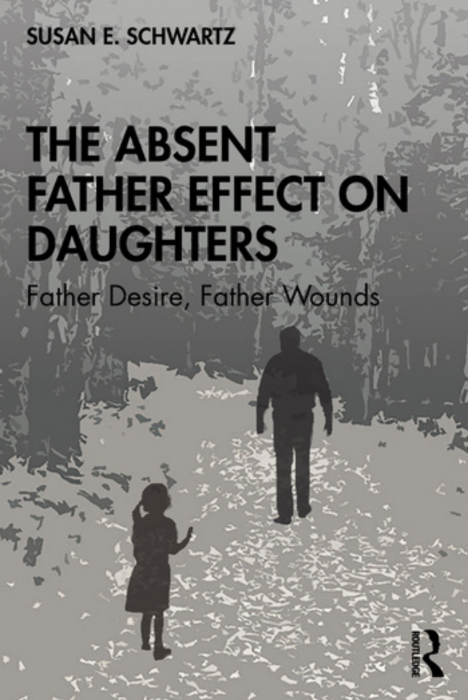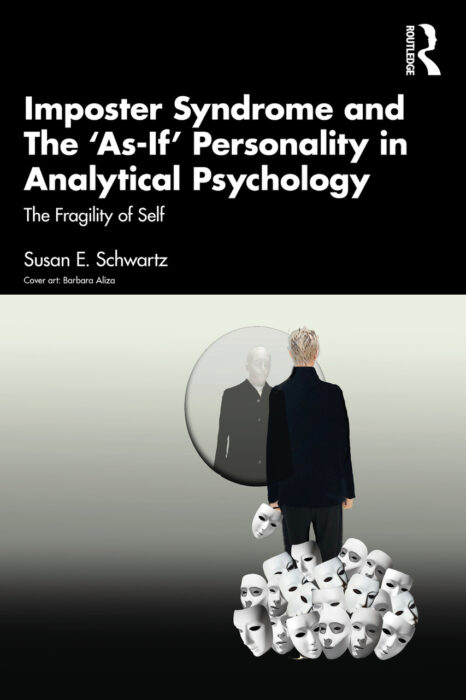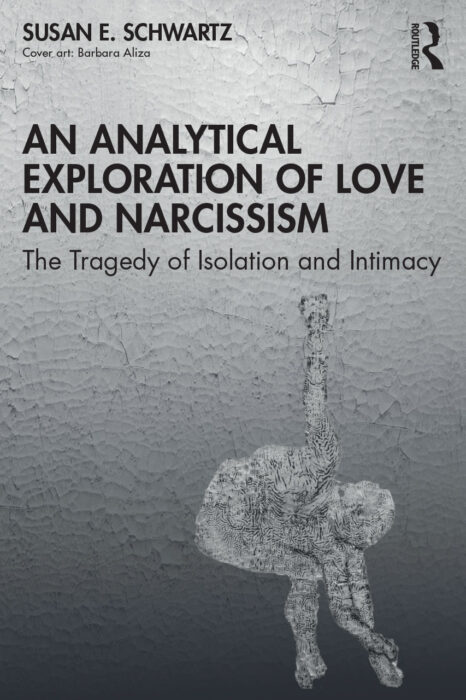Absent Fathers, Yearning Sons
Available May 2026
In 2022, one in four children in the USA live without a natural father. This book focuses on the father/son dynamics, specifically its lack and the psychological and collective results for our current era.
A Jungian Exploration of the Puella Archetype
This fascinating new book explores the puella as an archetypal, symbolic, and personality figure reaching into the classical foundations of Jungian analysis, focusing on the modern conflicts reverberating personally and culturally to remove the obstacles for accessing our more complete selves. (Available from Routledge)

The Absent Father Effect on Daughters
The Absent Father Effect on Daughters investigates the impact of absent – physically or emotionally – and inadequate fathers on the lives and psyches of their daughters through the perspective of Jungian analysis. This book tells the stories of daughters who describe the insecurity of self, the splintering and disintegration of the personality, and the silencing of voice.
Imposter Syndrome and The ‘As-If’ Personality
This insightful book explores the ‘as-if’ personality through the lens of Jungian analysis, illuminating how the same forces that can disturb personal development relationally, socially, and culturally are equally an impetus toward expressing and relating with ones more complete self.
Susan E. Schwartz, Ph.D.
Susan E. Schwartz, Ph.D. is a Jungian analyst educated in Zurich, Switzerland. For many years Susan has been giving workshops and presentations at numerous local, national, community and professional organizations, and lectures worldwide on various aspects of Jungian analysis. She has written several journal articles and book chapters on daughters and fathers, Puella, Sylvia Plath and has co-authored a couple of books.
Quotes
No one who does not know himself can know others. And in each of us there is another whom we do not know. He speaks to us in dreams and tells us how differently he sees us from the way we see ourselves. When, therefore, we find ourselves in a difficult situation to which there is no solution, he can sometimes kindle a light that radically alters our attitudes - the very attitudes that led us into the difficult situation.
I saw opening out before me a clearly marked field of activity, with all its problems, its hard work, its materials, its instruments, and its inflexibility. I no longer asked myself: what shall I do? There was everything to be done, everything I had formerly longed to do...but everything was possible.
We discover, indeed that we do not know our part, we look for a mirror, we want to rub off the make-up and remove the counterfeit and be real. But somewhere a bit of mummery still sticks to us that we forget....
Everything good is costly, and the development of personality is one of the most costly of all things. It is a matter of saying yea to oneself, of taking oneself as the most serious of tasks, of being conscious of everything one does, and keeping it constantly before one's eyes in all its dubious aspects -- truly a task that taxes us to the utmost.
Me from Myself - to banish - Had I Art - Impregnable my fortress Unto All Heart - But since Myself - assault Me - How have I peace Except by subjugating Consciousness? And since We're mutual Monarch How this be Except by Abdication - Me - of Me?
The fear of life is a real panic. It is the deadly fear of the instinctive, the unconscious, the inner [person] who is cut off from life by [her or his] continual shrinking back from reality.
Articles
Father Symbol in Dreams of Poetess Sylvia Plath
Sylvia Plath, American poetess of the mid-twentieth century who committed suicide at age 30 had many archetypal and personal themes in her dreams. Here we look at those pertaining to the father and his effect on a daughter’s masculine images and complexes.
How to Love a Narcissist
This presentation is a partial exploration about why it is hard to love a narcissist. And, it poses the question if it really is possible. There are many reasons the narcissist has challenges in love and difficulty in any relationship including with themselves.
Aging and Narcissim
Paradox and Necessity Ancient Chinese Taoism and traditional Chinese culture view longevity as an accomplishment, a symbol of pride including qualities of endurance, perseverance, flexibility and harmony. Taoism recognizes a relationship to the living spirit in nature, the divine within all creation.
Longing to Belong, Culture and Analysis
The identity and internal narrative of those living in a place different from their childhood is contiguous with the sense of estrangement we all have felt at once time or another. We each carry forms of wounding and exclusion, the lack of belonging to family, partner, group or self.
Podcast
Speaking Of Jung
Dr. Schwartz has written several journal articles and book chapters on daughters and fathers, the puella archetype, and Sylvia Plath. In 2018, she was nominated by the National Association for the Advancement of Psychoanalysis for their Gradiva Award for Best Article for “The Dead Father Effect on the Psyche of a Daughter—Sylvia Plath.”
Psychoanalytic and Jungian Perspectives on Couples at The Crossroads
Susan E. Schwartz, PhD is a Jungian analyst trained in Zürich, Switzerland with a private practice in Paradise Valley, Arizona. With Daniela Roher, Ph.D. she co-authored the book, Couples at the Crossroads: Five Steps to Finding Your Way Back to Love.
Toxic Masculinity - Behind The Mask with Susan
In this podcast series, I’ll be talking about men - masculinity, mental health and wellbeing. We will look at the role society plays in traditional and cultural perceptions of what it means to be a man and how that affects the wellbeing of the men in our lives.



